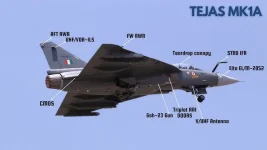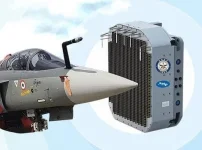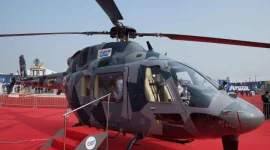- Views: 9K
- Replies: 53
India's unexpected mass order of Tejas Mk1A in 2021 may be the reason behind GE's inability to meet engine delivery timelines. This unexpected demand necessitated the delivery of almost 99 more F404-IN20 engines, a variant specifically designed for the Tejas Mk1 program, leaving GE scrambling to adjust its production capabilities.
GE officials, speaking anonymously, revealed that the company had not anticipated such a large order after the initial procurement of 40 Tejas Mk1 jets. By 2013, India's focus had shifted to the more advanced Tejas Mk2, powered by the F414 engine, further diminishing GE's expectations for additional F404 orders. Consequently, GE scaled back its supply chain for the specialized engine, assuming limited future demand.
The 2021 order for 83 Tejas Mk1A jets, bringing the total to 123, significantly disrupted GE's plans. The company faced a daunting supply chain challenge, needing to ramp up production for an engine it had virtually phased out. The COVID-19 pandemic further complicated matters, disrupting global supply chains and forcing GE to identify new partners to restart production.
Adding to the complexity, the F404-IN20 engine is a highly customized variant specific to India. While other countries utilize the F404 engine, their versions differ in thrust output and production arrangements, limiting GE's ability to leverage existing resources to meet India's sudden demand.
With India now planning to procure an additional 97 Tejas Mk1A jets, GE is accelerating its production efforts. The company aims to deliver 20 engines per year starting in 2026, with potential for further increases. This commitment is crucial to support the expanding Tejas Mk1A fleet and ensure its operational readiness.
Despite the challenges, GE remains dedicated to fulfilling India's orders and supporting the Tejas Mk1A program. The F404-IN20 engine will continue to play a vital role in India's light combat aircraft fleet until the Tejas Mk2 enters full production.



